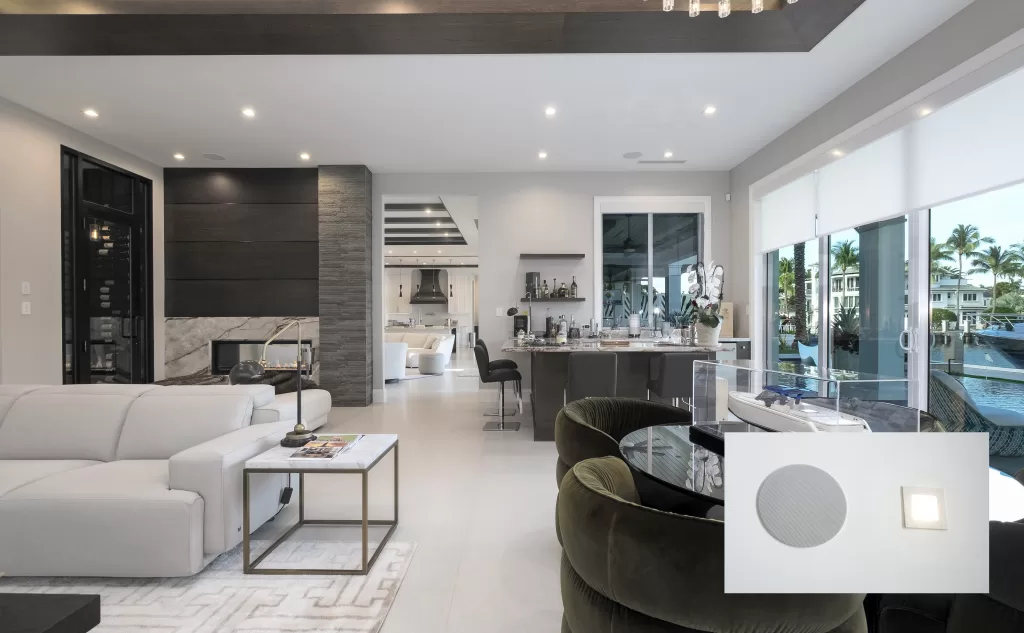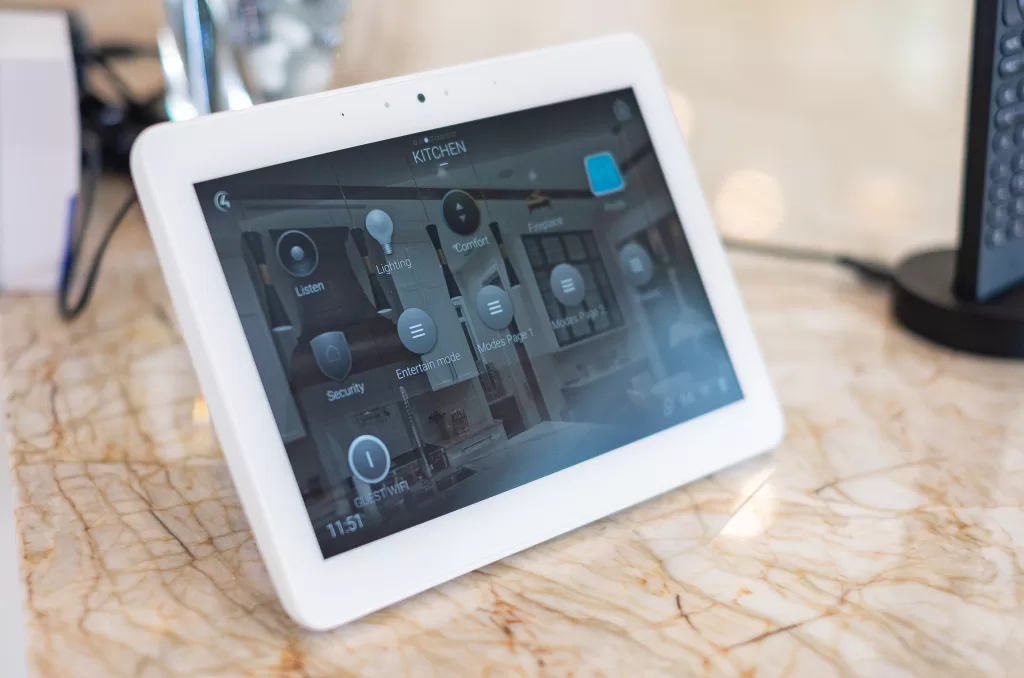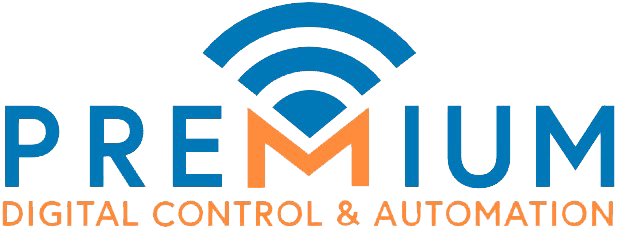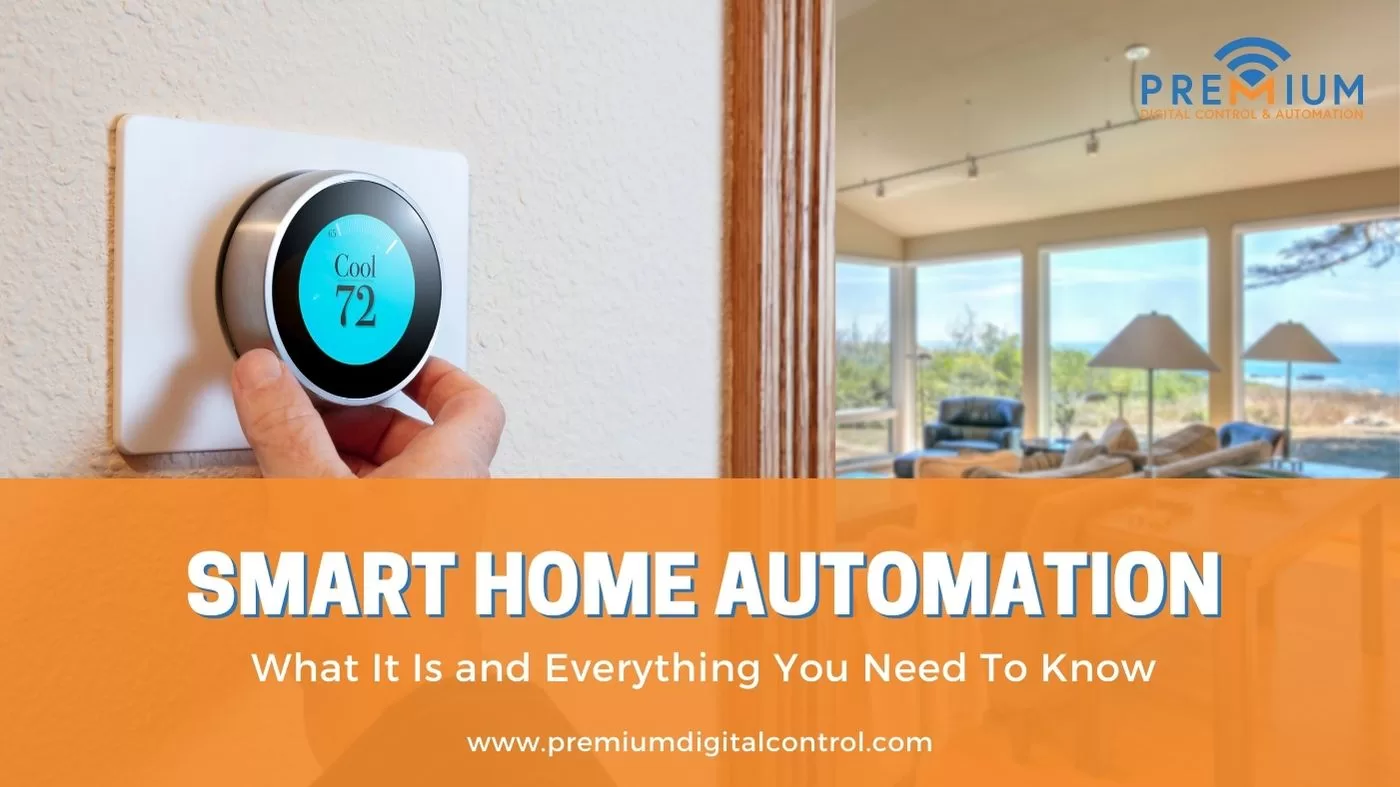In recent years, the concept of a “smart home” has gained significant traction, transforming the way we live and interact with our living spaces. With advancements in technology, smart home automation has become more accessible and affordable, offering homeowners the opportunity to streamline their daily routines, enhance security, and optimize energy consumption. In this blog, we will delve into the basic understanding of smart home automation, exploring its key features, benefits, and its impact on our lives.
Understanding Smart Home Automation
Smart home automation refers to the integration of various electronic devices, appliances, and systems within a home to create an interconnected network that can be controlled and monitored remotely. It leverages technology to provide homeowners with enhanced convenience, comfort, energy efficiency, and security. Through a central hub or a mobile app, homeowners can manage and automate various aspects of their homes, such as smart lighting, heating, air conditioning, smart security cameras, door locks, entertainment systems, and more.
With smart home automation, homeowners gain unprecedented control over their living spaces. They can easily customize and schedule routines and preferences to suit their needs and lifestyle. For instance, they can set up automated lighting systems that turn on or off at specific times or when motion is detected, adjust thermostat settings remotely to save energy, receive alerts and monitor security cameras while away, and even control appliances. This level of control and connectivity allows homeowners to streamline their daily tasks, optimize energy consumption, improve home security, and create personalized, comfortable environments tailored to their preferences.

Key Features of Smart Home Automation
Connected Devices: The foundation of smart home automation lies in the network of connected devices. These devices, equipped with sensors and internet connectivity, can be anything from thermostats, lighting systems, door locks, security cameras, to kitchen appliances and entertainment systems.
Learn more about top smart home devices.
Centralized Control: A central hub or smartphone app acts as the control center, providing homeowners with a convenient interface to manage and monitor their smart home devices. Through this interface, users can create customized schedules, set preferences, and receive real-time notifications.
Automation and Scenes: Smart home automation enables the creation of automated routines and scenes. For instance, a “Good Morning” scene could adjust the thermostat, turn on specific lights, brew coffee, and play your favorite music, all with a single command or automated schedule.
Benefits of Smart Home Automation
Convenience: Smart home automation eliminates the need for manual operation of various devices and appliances. With a few taps on your smartphone, you can control lighting, adjust room temperature, or even lock/unlock doors from anywhere, providing unparalleled convenience.
Energy Efficiency: Smart home automation empowers homeowners to optimize energy consumption. For example, smart thermostats can learn your preferences and adjust temperature settings accordingly, leading to energy savings and reduced utility bills. Similarly, smart lighting systems can automatically turn off lights when no one is in the room, further conserving energy.
Enhanced Security: Smart home automation offers robust security features. Integration with security cameras, door/window sensors, and smart locks allows users to remotely monitor and secure their homes. Video feeds provide peace of mind, allowing homeowners to respond promptly to any suspicious activity.
Customization and Personalization: Smart home automation provides users with the flexibility to customize and personalize living spaces. With the ability to create scenes and automate routines, homeowners can set the ambiance, create mood lighting, and tailor their home environment to their specific preferences.

Smart Home vs “Normal” Home
A smart home is distinct from a normal home in its advanced level of connectivity and automation. In a smart home, various devices and systems are interconnected, allowing seamless communication and integration. This connectivity enables automation and remote control of different aspects of the home, such as lighting, temperature, security, and entertainment systems. Through a central hub or smartphone app, homeowners can conveniently monitor and adjust settings from anywhere, providing unparalleled convenience and flexibility. In contrast, a normal home lacks this level of integration and automation, requiring manual operation and control of individual devices without the ability to remotely monitor or adjust settings.
Another notable difference lies in the customization and personalization capabilities of a smart home. With the ability to create customized scenes and automation routines, smart homes can be tailored to individual preferences and daily routines. Homeowners can set up specific scenes like “Movie Night” that automatically dim the lights, close the curtains, and turn on the entertainment system with a single command. These personalized settings create a more immersive and enjoyable living experience. On the other hand, normal homes rely on manual adjustments for different devices and systems, lacking the ability to create such customized and automated routines.
Read more on how you can set up specific scenes for your home with smart home lighting.
Impact on Daily Life
Smart home automation has revolutionized the way we interact with our homes and has a profound impact on our daily lives. Here are a few examples:
Time Savings: Automation eliminates the need for manual adjustments, saving time and allowing homeowners to focus on more important tasks or leisure activities.
Peace of Mind: The ability to remotely monitor and control security systems provides a sense of security, especially when away from home.
Energy and Cost Savings: Optimizing energy consumption can lead to significant savings on utility bills while reducing our carbon footprint.
Accessibility: Smart home automation caters to individuals with mobility challenges or disabilities, offering them greater independence and control over their living spaces.
Conclusion
Smart home automation represents the future of modern living, offering convenience, efficiency, and enhanced control over our living spaces. As technology continues to advance, the possibilities for smart home automation are limitless, providing homeowners with unprecedented comfort and connectivity. Embracing this transformative trend can lead to a more streamlined and secure lifestyle while minimizing environmental impact. So, why not take the first step and turn your home into a smart home? Experience the benefits of smart home automation and unlock a new level of convenience in the modern age.


